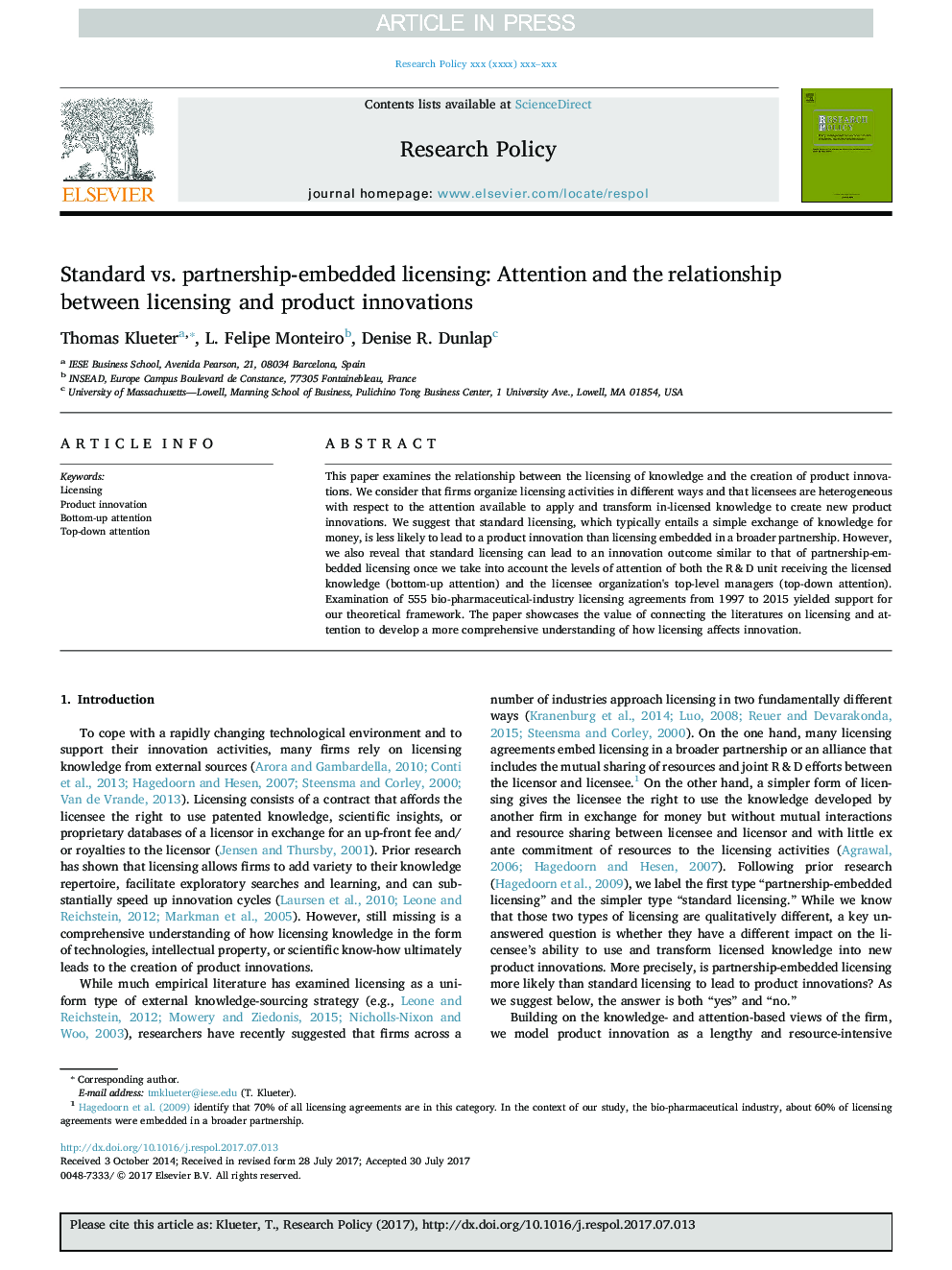| Article ID | Journal | Published Year | Pages | File Type |
|---|---|---|---|---|
| 5103873 | Research Policy | 2017 | 15 Pages |
Abstract
This paper examines the relationship between the licensing of knowledge and the creation of product innovations. We consider that firms organize licensing activities in different ways and that licensees are heterogeneous with respect to the attention available to apply and transform in-licensed knowledge to create new product innovations. We suggest that standard licensing, which typically entails a simple exchange of knowledge for money, is less likely to lead to a product innovation than licensing embedded in a broader partnership. However, we also reveal that standard licensing can lead to an innovation outcome similar to that of partnership-embedded licensing once we take into account the levels of attention of both the R&D unit receiving the licensed knowledge (bottom-up attention) and the licensee organization's top-level managers (top-down attention). Examination of 555 bio-pharmaceutical-industry licensing agreements from 1997 to 2015 yielded support for our theoretical framework. The paper showcases the value of connecting the literatures on licensing and attention to develop a more comprehensive understanding of how licensing affects innovation.
Related Topics
Social Sciences and Humanities
Business, Management and Accounting
Business and International Management
Authors
Thomas Klueter, L. Felipe Monteiro, Denise R. Dunlap,
